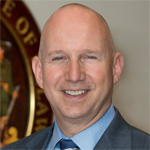
Facebook Twitter Google+ Instagram Pinterest Flickr YouTube
Written on: April 22nd, 2015 in Education
With the next presidential campaign getting under way, pundits have quickly focused more on the horse race than on where the candidates stand on important issues like improving public education.
One area that deserves far more attention is the array of proposals to divert public spending on education into private school vouchers or “education savings accounts” that can be used for private and parochial schools, home schooling, and other programs that aren’t part of the public education system.
These policies, already enacted in several states and proposed in several more, are a reminder that privatization is not a ready-made solution for every government problem.
Here’s why these programs don’t produce results for our students.
Everyone agrees that solid academics are the foundation for career and college readiness. Yet, according to a review by the Center on Education Policy, numerous studies have concluded that vouchers, the prime example of privatization, “don’t have a strong effect on students’ academic achievement.” If voucher programs are motivated by a desire to improve educational outcomes for our young people, and not simply to divert public spending to private education, then their unsettled and uneven history does not support continuing them.
Compounding this problem is that the private and parochial schools that receive tax dollars are, in many cases, not accountable for providing a quality education to young people, particularly those most at risk of falling behind.
In the public school system, states are required to establish baseline expectations of accountability through standards and testing. Although hardly beloved, standardized-test scores are the most effective method we have to identify which students need our help, which is why civil rights groups like the American Civil Liberties Union and the United Negro College Fund have been among the most vocal advocates for statewide assessments. They know it is most often poor, minority students—those who most need our help—who most often don’t receive the education they need. When we don’t provide a valid way to measure students’ achievement and hold educators and schools accountable for their academic growth, those students are too easily forgotten.
Children in home, parochial, and private schools aren’t required to take state assessments. State officials can’t track these students’ growth to make sure they don’t fall behind. Private school teachers and home-schooling parents aren’t required to teach to the state’s educational standards; and they don’t have to be rigorously licensed or certified like public school educators.
Voucher systems also divert millions of taxpayer dollars out of our public schools. While we should respect and encourage parental engagement and choice of schools—including private, parochial, and home schools—for their children, it is not acceptable to divert limited public education funding at the cost of the public schools that serve our communities.
Public funding for these voucher programs also presents significant policy issues because so many schools affected include a religious component in their curriculum. In general, the government should not be in the business of funding programs or institutions that promote one religion over all others.
But being against vouchers for these reasons isn’t enough. Political leaders have a responsibility to articulate a clear vision for what an improved public school system looks like.
That means using parent choice among traditional, charter, and magnet schools to foster innovative instruction, and hold public schools accountable for giving students the best opportunities possible.
It means demanding more rigorous college and career standards like the common core.
It means providing better support for our teachers, including training them to use data about student achievement effectively, and evaluating them appropriately.
It means more dual-enrollment and Advanced Placement courses to challenge students and reduce the cost of college.
It means investing in high-quality early-childhood programs so all kids enter kindergarten ready to learn.
And it means recognizing that too many of our students arrive at school hungry and from traumatic family situations. Serving these children effectively requires different types of training and community resources.
I agree with former Florida Gov. Jeb Bush that policymakers should be “more daring” when it comes to education policy. But that must mean pushing the public school system to improve, not following the suggestions of a number of candidates for president and state lawmakers who would use taxpayer money on unaccountable programs that ultimately cut funding from public schools.
Original post from Education Week.